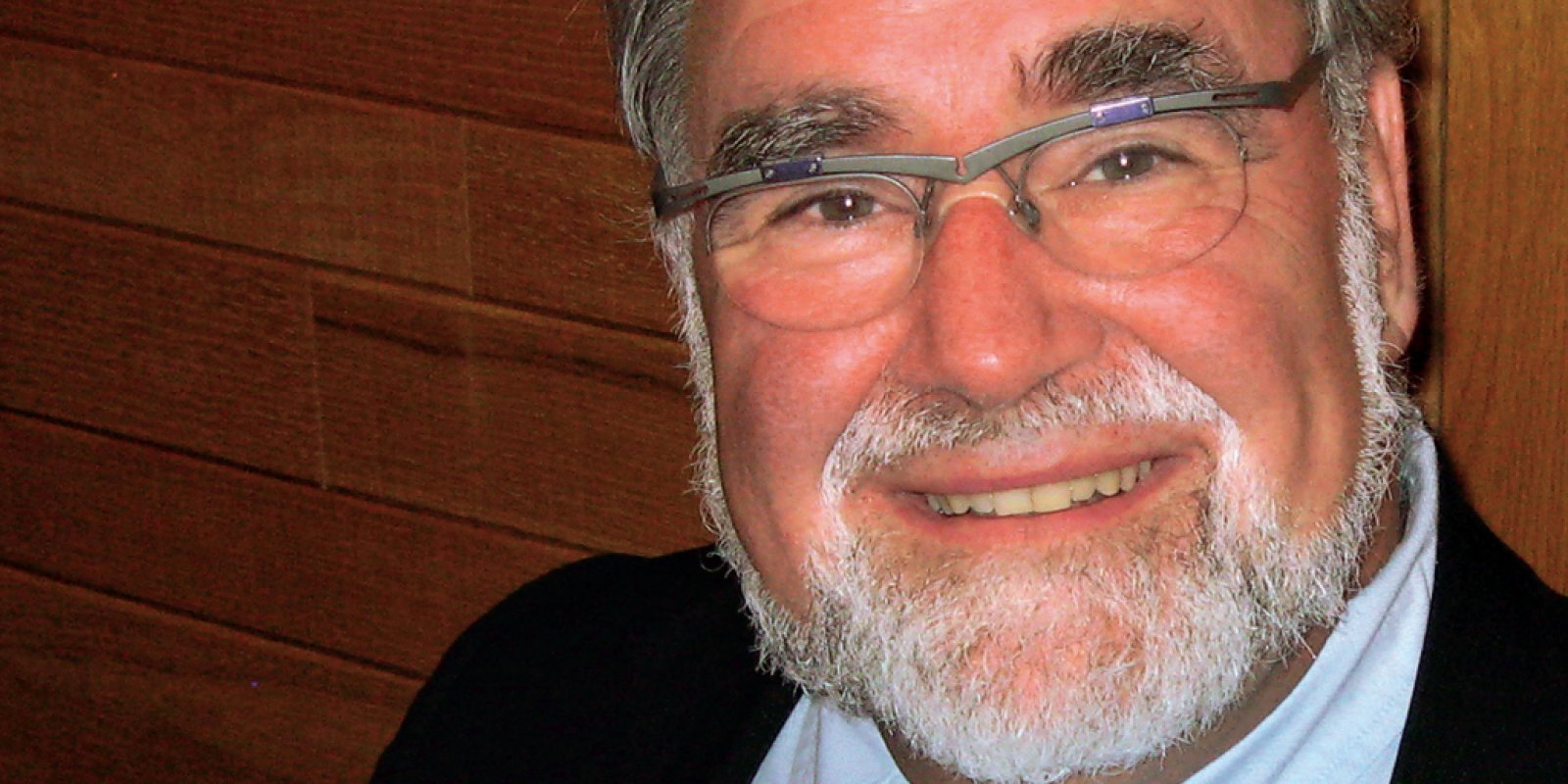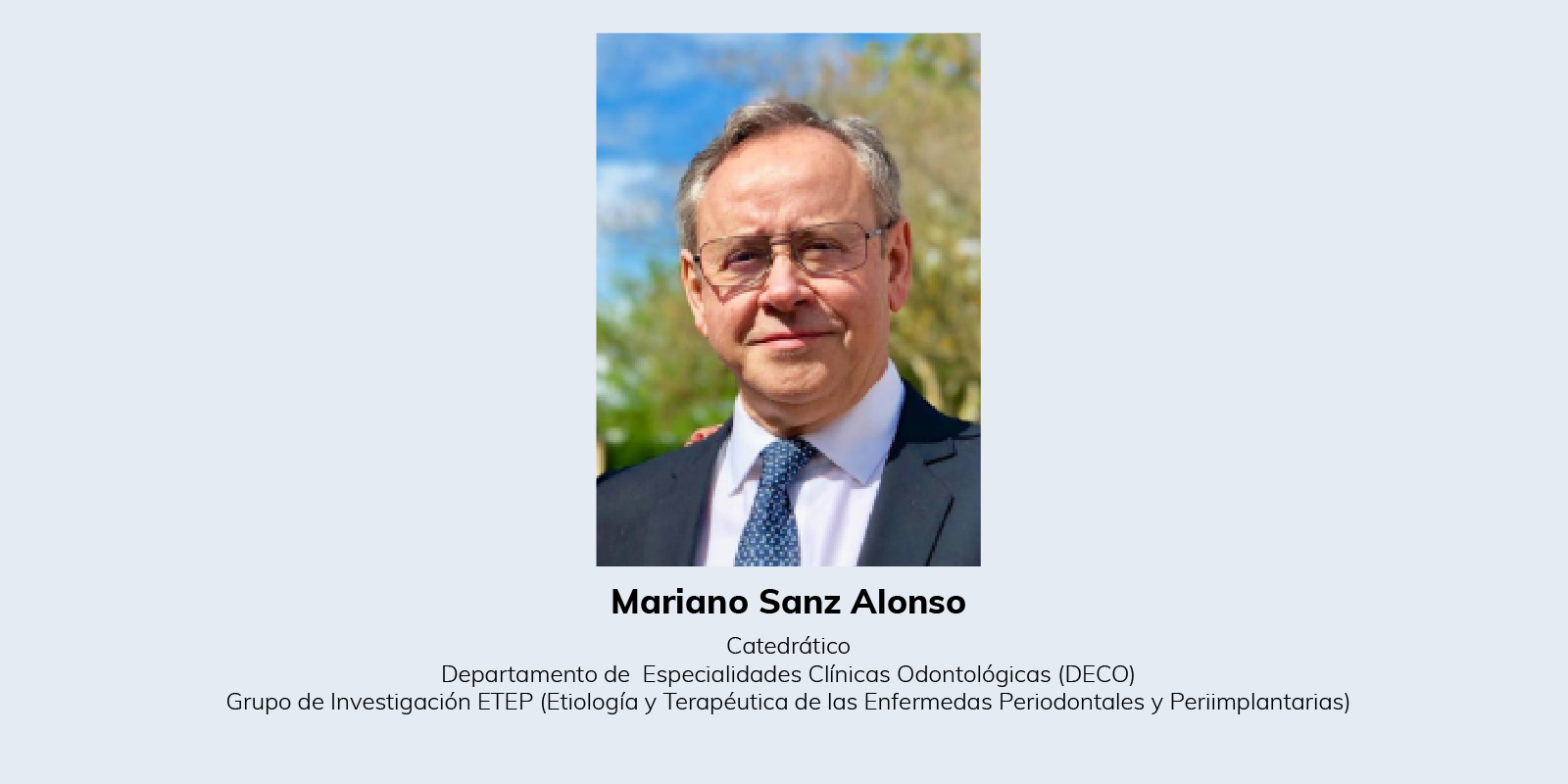DENTAID EXPERTISE
News for dentistry professionals
Dr. Niklaus P. Lang, Professor of Implant Dentistry at the University of Hong Kong
27 Sep 2014

Professor of Implant Dentistry at the University of Hong Kong . Author of more than 520 specialized publications and conference proceedings. Niklaus P. Lang has been granted four honorary doctorate awards and is honorary member of ten national dental societies. He also actively participates in clinical research related to implant dentistry, periodontology, etiology and pathogenesis of peri-implant infections, risk evaluation, wound healing and oral microbiology.
After 30 years as professor and director of Dental Medicine School of the University of Bern, you have achieved great advances in the field of Periodontology and Implantology. In which stage are we now?
These 30 years have been exciting times. When I started in the early 1970's, the plaque revolution was in full speed. The recognition of a cause and effect relationship between bacterial plaque and gingivitis was established. Consequently, plaque was to be fought with all means and techniques, mechanically, technically and motivationally in collaboration with the patient. This paradigm still goes on today. Later, regenerative procedures were detected and developed. Finally, the recognition of the systemic influence of periodontitis came into focus. Today, we are still elaborating on these issues. Another aspect of interest is the study of the host response and its modification. Periodontology was always and is still an exciting field of research and clinic. It has become the basis of modern dentistry at large.
Is peri-implantitis a new challenge to solve?
In the light of the enormous number of implants installed every year (2012: approx. 2.3 million), even a small percentage of peri-implantitis represents a major health problem for the profession. Approximately 1-2% of the implants will develop peri-implantitis per year. After ten years, this amounts to 10-15% of the implants that have to be treated for peri-implantitis.
"Periodontology was always and is still an exciting field of research and clinic. It has become the basis of modern dentistry at large."
¿What are the causes of peri-implantitis infection?
Periodontitis is an opportunistic infection as is periodontitis and dental caries. The microbiota triggering the disease is a gram-negative anaerobic microbiota as encountered in periodontitis. Occasionally, specific organisms such as Staphylococcus aureus may be of significance. Some clinicians speculate about a role of overload in the disease process, but such connections to peri-implantitis have never been demonstrated. For all practical reasons, peri-implantitis has to be addressed as an infection.
Is there a common cause for periodontitis and peri-implantitis?
Yes, there is. See above. The microbiota being responsible for eliciting the host response in periodontitis is very similar to that being responsible for the development of peri-implantitis. Plaque formation, again is the key feature of all hard, non-shedding surfaces in a fluid system. This applies to teeth as well as to implants.
Which are the main risk factors for an implant?
During the surgery and after doing it. Before surgery, it is important to treat and clean the oral cavity from other diseases such as periodontitis as to deplete the reservoirs for pathogenic microorganisms. During surgery, the careful preparation of the implant bed and the avoidance of heat generation and exercising pressure to the pristine bone is of utmost importance. After installing the implant, a prosthesis that is accessible to oral hygiene practices has to be installed. Furthermore, the patient's performance in oral hygiene has to be improved, supervised and carefully monitored.
What are your recommendations for implant maintaining?
Implant maintenance is a key prerequisite for long-term success. Both the patient and the practicing dentists have to be engaged in an organization of a regular monitoring and maintenance care system. Patients with high risk for reinfection may need a frequency of 4 month intervals. Implants are carefully probed at each visit. Increasing probing depth from baseline justifies obtaining a radiograph to verify presence or absence of bone loss and diagnose peri-implantitis. In case of presence of mucositis (inflammation of the peri-implant mucosa) alone prophylactic measures are performed. Only in absence of any signs of diseases may the implant be polished without further ado.
“Implant maintenance is a key prerequisite for long-term success. Both the patient and the practicing dentists have to be engaged in an organization of a regular monitoring and maintenance care system.”
In which stage is the research on periodontal regeneration? What can we expect from the regeneration of periodontal tissues with stem cells?
Many attempts are being made to improve the predictability of regenerative procedures. Whether or not stem cell therapy is the answer, I do not know. I have the firm belief that today, a reliable and effective armamentarium for regenerative procedures is available, and appropriate decision trees have been worked out to guarantee good treatment outcomes. However, I realize that human nature always tries to reach the stars, sometimes ignoring the proven principles available as of now.
In your opinion, what are the more important advances in implantology going to be in 2013? And in the near future?
The devices available today present with optimal surface characteristics, materials and handling procedures. There is not much to be expected in the near future in terms of true improvements of the devices. However, when it comes to treatment planning, a lot of development is to be expected. More biological aspects have to be considered than mechanical ones. Also, the diagnosis and treatment of peri-implantitis is a real challenge that we face today. The systematic study of the efficacy of treatment protocols is desperately needed.
RELATED ARTICLES

13 Dec 2021
Daniele Puzzilli, the dentist of footballer Leonardo Spinazzola
With this pandemic, it has been seen that people pay more attention to their personal care. How important is dentistry in times of COVID-19? The…

09 Jun 2021
Prof. Mariano Sanz, EFP Eminence in Periodontology Award
What does winning the EFP Eminence in Periodontology Award mean to you? It means a lot, as I have been very active in the EFP since it was…

11 Feb 2020
Dr Alejandra Chaparro, Dentist specialising in periodontics and Chair of the IADR Chile
Dr Alejandra Chaparro, the current Chair of the Chilean division of the International Association for Dental Research (IADR), is a dentist who…
Sign up for the DENTAID Expertise newsletter
Sign up for the newsletter